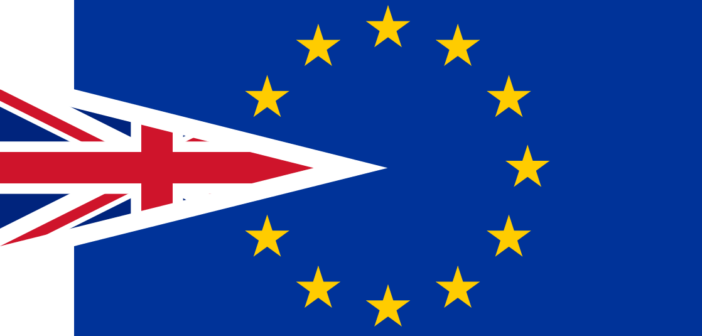Brexit: What Does It Mean for Beijing's Expats
The shock waves from the United Kingdom’s vote to leave the European Union have reverberated around the world, causing losses on the stock markets of Shanghai and Hong Kong as well as London. For many international families, used to living, working and marrying across borders, the decision will cause uncertainty and anxiety. Here’s what you need to know about the present and future implications, as far as they can be ascertained at this early stage.
What is “Brexit”?
The term refers to the United Kingdom leaving the European Union (EU): “British exit”. The EU is an association of states which includes most of the countries of Europe. Initially a trading bloc, the EU has extended its scope to areas such as security and social affairs, and this has been unpopular in the UK. Citizens of EU countries have the right to travel, live, and work freely in any other EU state.
Why has the UK chosen to leave?
The answers to this are complex, and the reasons may be very different for different voters. At one end, there are arguments of principle about the sovereignty of nations and fears of a European “super-state”. At the other extreme, there has been a rise in nationalism which has seen a surge in racist incidents on the streets of Britain since the vote. The UK has been historically wary of the European principle of “ever-closer union”, and opted out of the common currency (the Euro), the borderless travel area (the “Schengen” zone), and many other expressions of integration.
It’s worth noting too that “Leave” won by a narrow majority, with 48 percent of voters wanting to stay in the EU.
What happens right now?
The short answer to this is: nothing. The referendum is an expression of the will of the British people, but only the government can actually start the process. Astonishingly, the referendum took place without any clear plan for what would happen in the event of a “Leave” vote.
However, what is clear is that the uncertainty about the future is having a detrimental effect on not only the British economy, but economic confidence worldwide.
When will the split actually happen?
At this time nobody knows. The key moment is when the British government formally announces its intention to leave, activating Article 50 of the Lisbon Treaty. From that moment an irreversible two year countdown begins, and at the end of that time the UK will no longer be a member of the EU.
However Article 50 has not yet been activated. Prime Minister David Cameron, who had previously said he would honor the decision although he campaigned strongly against Brexit, announced his resignation when the result became clear. He will stay on until a new PM is chosen, but will not pull the trigger himself.
Under the UK’s parliamentary system the new Prime Minister will be chosen by the ruling Conservative party, not by an election. Cameron has said the choice will be made before October.
The most obvious candidate to replace him is Boris Johnson, former Mayor of London, who led the “Leave” campaign. However Johnson has made it clear he would prefer informal discussions with the EU first, so that the key decisions are made before the countdown begins. This suggestion has been dismissed by most key European players, who want Britain to just get on with it and activate Article 50 immediately, although German Chancellor Angela Merkel has called for calm in the hope that the decision might somehow be reversed.
It’s by no means certain that Johnson will win the byzantine leadership process, and there have also been calls for a new general election to give a mandate to the government which will carry out the exit negotiations. It is not impossible that the wrangling will carry on for years, although voters might punish a government which hasn’t carried out its will by the next fixed election date of 2020.
Will the UK break up?
The UK consists of four main “nations”: England, Scotland, Wales and Northern Ireland. In England and Wales a majority voted to leave, while in Scotland and Northern Ireland there was a majority to stay in the EU.
Scotland has its own parliament, currently dominated by the Scottish Nationalist Party, which is pledged to seek independence from the UK. However Scottish voters rejected independence in a referendum only two years ago. The Scottish First Minister has said she regards “Brexit” as grounds for a new referendum, but this would require the approval of the UK parliament, who are unlikely to agree. She is also exploring whether Scotland can remain part of the EU even if England and Wales leave. (This sounds odd, but there is a precedent: Denmark is an EU member but its territories of Greenland and the Faroe Islands are not.)
Northern Ireland has a land border with the Republic of Ireland, an EU member. This border was opened as part of a long and painful peace process after decades of sectarian violence; closing it again is a nightmarish prospect. However leaving it open makes a nonsense of closing borders to the rest of the EU. There’s little realistic prospect of Northern Ireland leaving the UK in the near future, but it’s a complex and possibly dangerous situation.
What does it mean for British citizens living in China?
At this stage it’s not all bad news. The dramatic fall in the value of the pound after the announcement of the result is the equivalent of a 5 percent pay rise, if you’re paid in RMB and sending money home to the UK. However the value of savings, investments and pensions back home will have been hit, and there are hints that the market expects property prices to fall too.
What does it mean for citizens of other EU countries?
This largely depends on the outcome of negotiations. Most Britons want to remain part of the single market, trading freely with the rest of the EU. However EU officials have made it clear that this means also accepting the free movement of people, and concerns about immigration featured very strongly in the Leave campaign.
Boris Johnson’s first statement since the referendum suggests that he would be in favor of maintaining free movement between the UK and the EU, and in this case other EU citizens would notice little difference: they would still be able to live, work and study in the UK with no restrictions. However British voters who thought they were voting for reduced immigration may respond angrily.
Leave campaigners assured people that they could have both a block on free movement and access to the single market; if this proves to have been optimistic, some Leave voters would prefer to withdraw from the single market. In this case the rights of EU citizens to live and work in the UK would be severely restricted.
Nobody should panic yet though. There are hundreds of thousands of UK citizens living in other EU countries, and there’s no prospect of any forced repatriations at present.
What does it mean for the relationship between China and the UK?
China has been a significant investor in Britain in recent years, and this has been actively encouraged by the UK government. Premier Li Keqiang has talked about maintaining strong ties with both Britain and Europe. “We hope to see a unified and stable EU, as well as a stable and prosperous Britain,” he said. Nonetheless, if Britain were to leave the single market, it would make the UK a significantly less attractive proposition for Chinese companies.
It may also deter Chinese investors from investing in the property market in London, although given the overheated state of the market, this may not be a bad thing.
Is there any chance of the decision being reversed?
A petition demanding a second referendum has gained over three million signatures, though there are suggestions that it has been manipulated. Some people who voted to leave are now saying they didn’t understand what was involved, or thought they were registering a protest vote and that Brexit would never actually happen. Most people however have little appetite for a rerun, even if they voted to Remain.
The referendum is not legally binding. Some MPs have suggested they would vote against the necessary legislation, but this would infuriate many voters and trigger a constitutional crisis.
Another possibility is that a general election is called, and won by a party pledging to remain in the EU. This would give a clear democratic mandate, but at this stage only the Liberal Democrat party have said they would do this, and there’s little chance of them forming a government. The main opposition Labour Party meanwhile is in disarray as senior MPs demand the resignation of their leader Jeremy Corbyn, who is hugely popular with the party membership but not with his parliamentary colleagues or the wider electorate.
The most likely outcome is that the UK will adopt the so-called “Norway model”, leaving the EU but remaining in the single market, paying into the EU budget, accepting its laws and maintaining the free movement of people. This very British compromise will please almost nobody in what is now a deeply divided nation, but may be the best possible outcome for international families.
This post first appeared on our sister website beijingkids.
Photos: Rlevente (Wikimedia Commons)
Related stories :
Comments
New comments are displayed first.Comments
![]() Mezza
Submitted by Guest on Wed, 06/29/2016 - 22:33 Permalink
Mezza
Submitted by Guest on Wed, 06/29/2016 - 22:33 Permalink
Re: Brexit: What Does It Mean for Beijing's Expats
The 'Norway Model' of EU single market membership is a joke. They pay about 90% of the membership fees of a fully fledged union member but have zero voting rights. They should have just negotiated a trade deal with the EU block instead, which is the path I hope the UK will take while negotiating it's exit.
Validate your mobile phone number to post comments.







